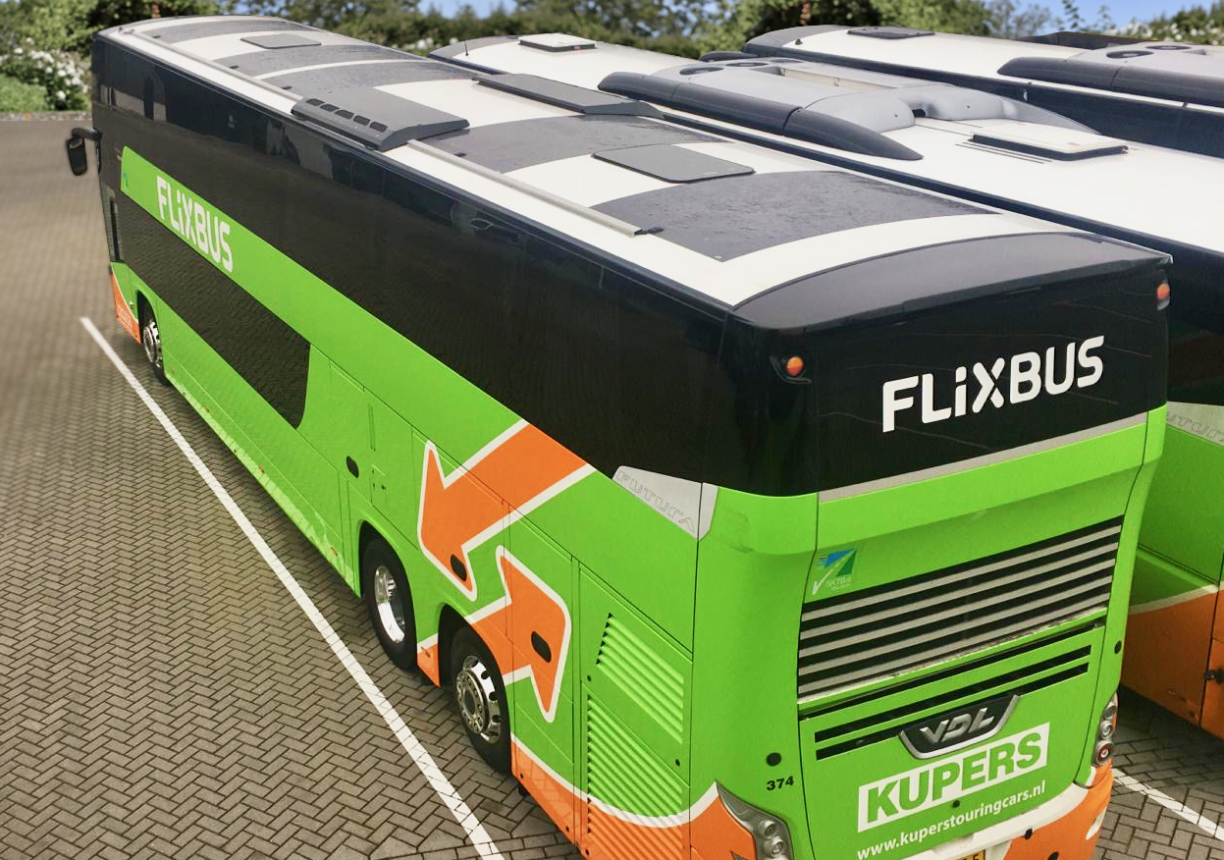
So-called solar mats were installed on the roof of the bus, preventing air resistance thanks to their ultra-thin and lightweight format. During the trial period, an average of 1.7 litres of diesel was saved per 100 km, which translates to roughly 7% diesel saved per trip. This number is expected to increase in the summer.
FlixBus is the first to apply this technology to an international long-distance bus, in a bid to provide Co2 neutral services by 2030. Once the pilot project is deemed successful it will be extended to other routes and the rest of the fleet.
FlixBus carried 190,000 passengers to and from Luxembourg in 2019: 90% increase